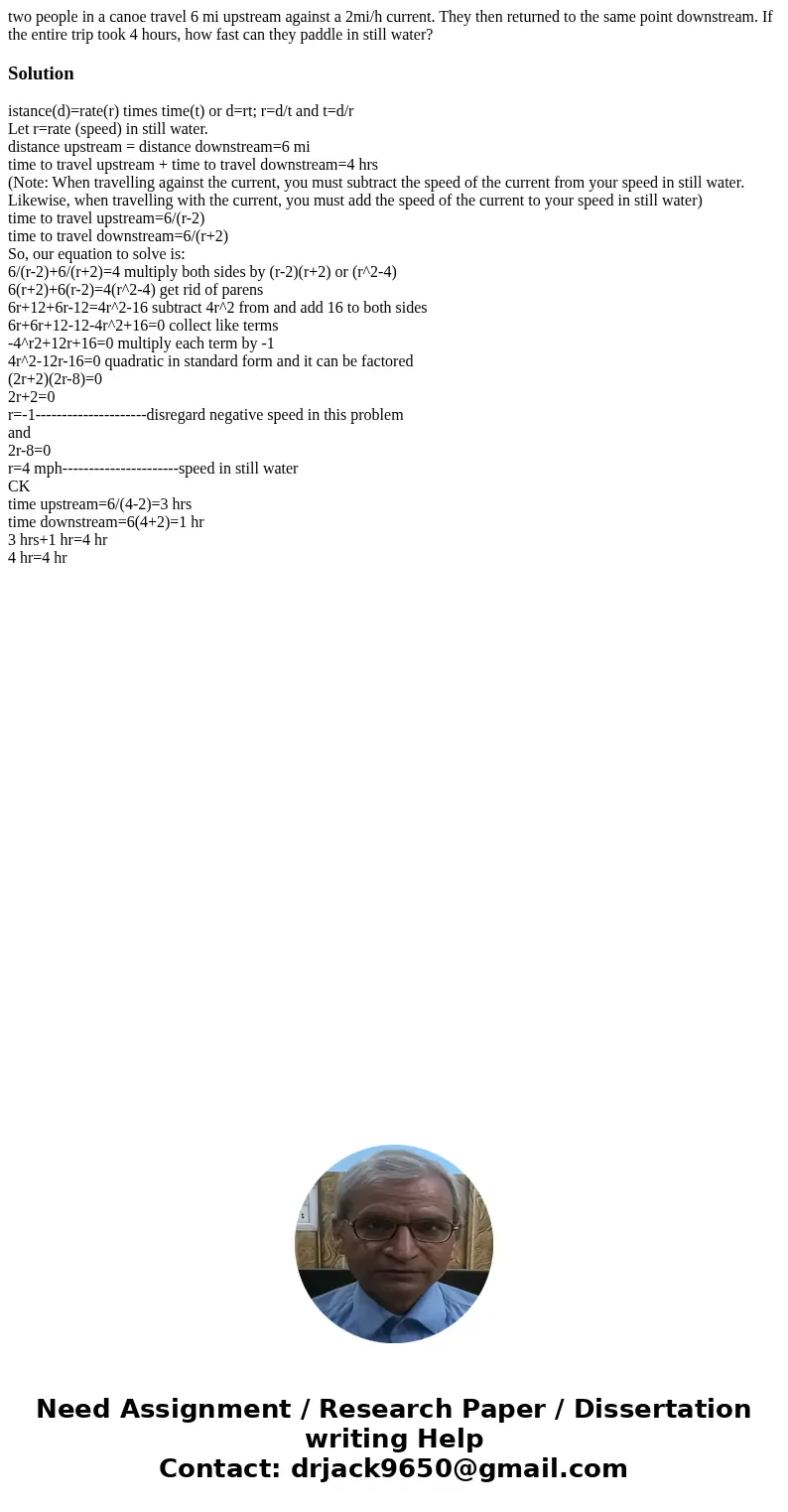two people in a canoe travel 6 mi upstream against a 2mih cu
two people in a canoe travel 6 mi upstream against a 2mi/h current. They then returned to the same point downstream. If the entire trip took 4 hours, how fast can they paddle in still water?
Solution
istance(d)=rate(r) times time(t) or d=rt; r=d/t and t=d/r
Let r=rate (speed) in still water.
distance upstream = distance downstream=6 mi
time to travel upstream + time to travel downstream=4 hrs
(Note: When travelling against the current, you must subtract the speed of the current from your speed in still water. Likewise, when travelling with the current, you must add the speed of the current to your speed in still water)
time to travel upstream=6/(r-2)
time to travel downstream=6/(r+2)
So, our equation to solve is:
6/(r-2)+6/(r+2)=4 multiply both sides by (r-2)(r+2) or (r^2-4)
6(r+2)+6(r-2)=4(r^2-4) get rid of parens
6r+12+6r-12=4r^2-16 subtract 4r^2 from and add 16 to both sides
6r+6r+12-12-4r^2+16=0 collect like terms
-4^r2+12r+16=0 multiply each term by -1
4r^2-12r-16=0 quadratic in standard form and it can be factored
(2r+2)(2r-8)=0
2r+2=0
r=-1---------------------disregard negative speed in this problem
and
2r-8=0
r=4 mph----------------------speed in still water
CK
time upstream=6/(4-2)=3 hrs
time downstream=6(4+2)=1 hr
3 hrs+1 hr=4 hr
4 hr=4 hr

 Homework Sourse
Homework Sourse